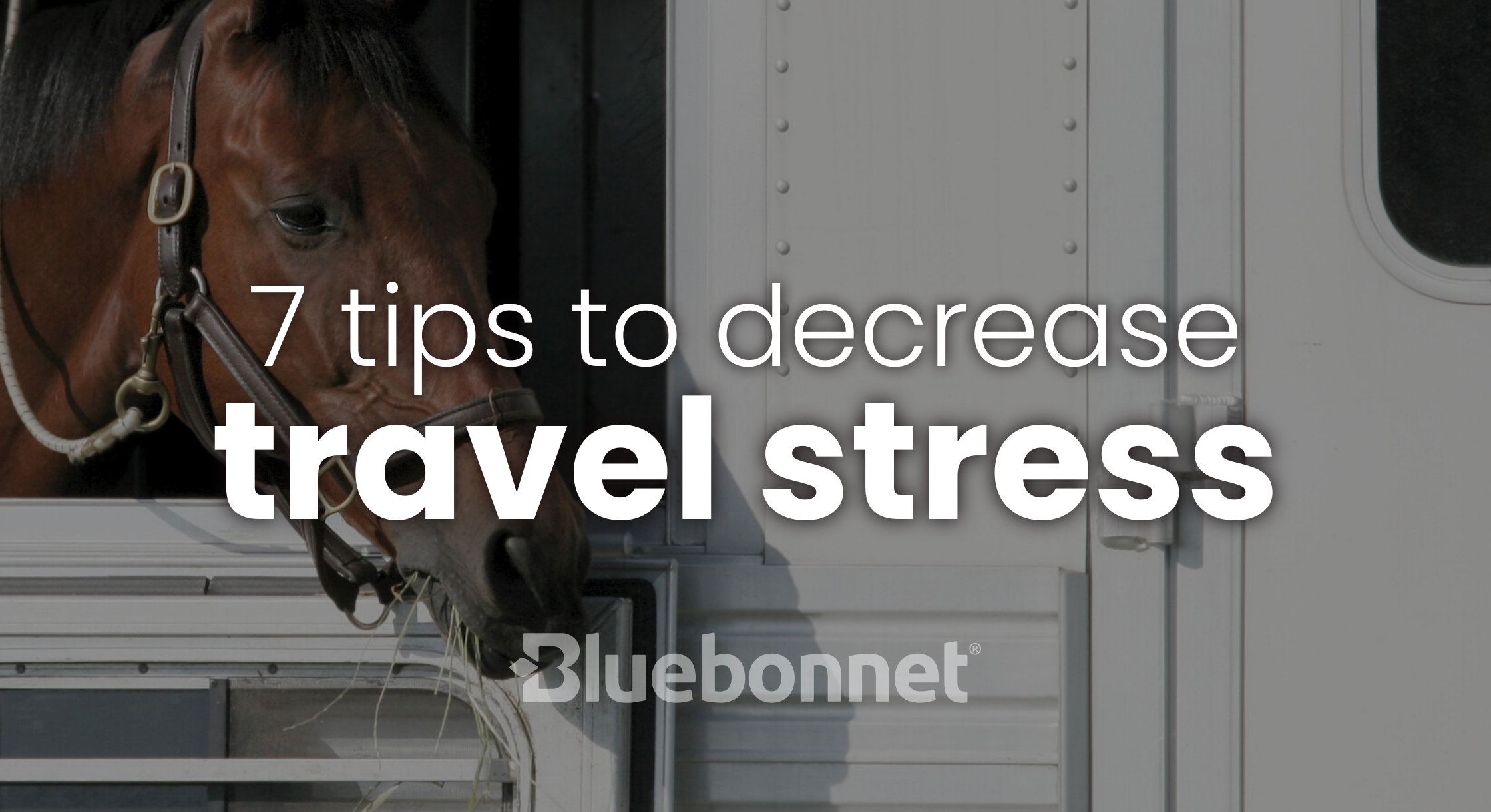
Horses are creatures of habit. They're designed to be healthiest when they're in a herd out in a field, grazing all day. Nearly anything else causes some level of stress, let alone loading them in a metal box to take them from their home and herd.
Risks from travel include: weight loss, dehydration, respiratory infections, gastric distress that could lead to colic, and muscle fatigue. All of which we definitely don't want our horses to experience in general, but will also certainly decrease their performance at the show.
The Impacts of Travel
Hauling your horses is exercise. Research from the University of California, Davis has shown that horses can lose 0.45 to 0.55% of total body weight per hour of transport1. So if you have an 1100lb quarter horse, that's 4.95-6.05lbs per hour. On a 5 hour trip, your horse could lose over 30lbs. This is a good indication of the toll travel can really take on your horse.
Muscle Recovery & Stamina: The faster your horse recovers, the more energy they’ll have to perform. So, it’s important to consider the time it will take for their body to replenish energy, mostly stored in their muscles in the form of glycogen. (Bonus tip: this is part of the reason why horses will experience muscle fatigue resulting in more stumbling).
Digestive Health: The stress from travel can also cause gastric distress and negatively impact the health of the microbiome - responsible for many things including supporting healthy digestion of fiber in the hindgut, blocking bad pathogens and toxins, boosting the immune system and more.
Respiratory Health: Did you know? Studies have shown that tying heads in an upward posture for long periods of time makes it more difficult for horses to get rid foreign particles in the trachea, leading to more bacteria in the respiratory system and infections. The stress from travel also decreases the immune system's ability to fight of viruses and bacteria - further contributing to the risk of infection.
Recommendations to decrease the risks of travel stress, promote overall well-being and improve performance.
- Provide adequate rest time after hauling (recommend 1 day for hauls between 6 and 12 hours, and 2 to 3 days for trips over 12 hours)
- Stop frequently to provide water, and check for dry feces. With dehydration being another risk, this could also compound the negative impacts on muscle recovery.
- Keep your horse’s respiratory system healthy, by ensuring the trailer is clean and has good ventilation.
- Tie heads as low as possible, to help prevent respiratory infections, while still being safe and allow slack for movement
- Supplement with Chromium Propionate, recently approved by the FDA’s Center for Veterinary Medicine, shown to help increase the uptake of glucose by cells - leading to faster replenishment of stored energy in the muscles.
- Take your hay, grain and supplements with you to prevent disruption to the digestive system. Don't change anything, if you can.
- Further support the digestive system with pre and probiotics, and/or a foregut buffer.
Learn more at BluebonnetEquine.com.
Want support deciding what’s most helpful for your horse? Sign up for a free nutrition consult with one of our experts.
1 - Sonder, Claudia, and Gregory Ferraro. Edited by Barbara Meierhenry, 2013, Transporting Horses by Road and Air. https://ceh.vetmed.ucdavis.edu/sites/g/files/dgvnsk4536/files/local_resources/pdfs/pubs-July2013HR-sec.pdf

